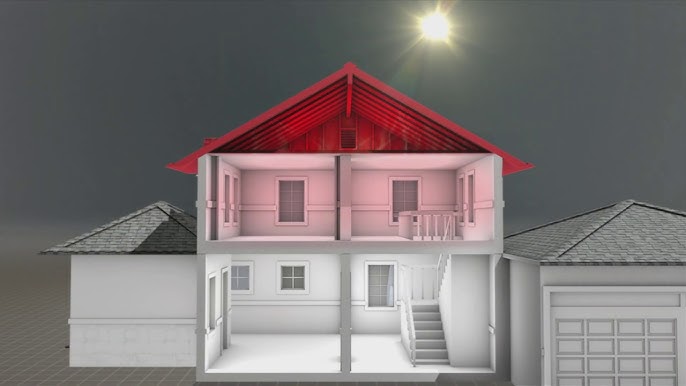
The warmer weather has arrived and as a responsible homeowner you decide to schedule your first HVAC maintenance of the year. All goes well except that your HVAC technician informs you that your refrigerant levels are lower than they should be. Now you are faced with the decision: pay for the refrigerant charge to be corrected now or ride it out (the AC seems to be working fine as is). You are probably more inclined to go with the second option because, how important is a correct refrigerant charge anyway?
How Does Refrigerant Work?
The short answer to that question is, especially important. In order to fully appreciate the refrigerants role in an efficiently run system it is good to understand how it works. Refrigerant is a substance that takes the form of liquid and gas. It travels throughout your system, absorbing the heat of your home while it is in a liquid state. As it cools (with the help of the blower) it turns to a highly pressurized gas that cools the coils. Air is blown over the cooled coils circulating the cooled air into your home.
What is Refrigerant Charge?
Refrigerant charge is another term used to describe the refrigerant levels in your system. An overcharged unit has too much refrigerant. An undercharged unit has too little. Believe it or not there is a range for refrigerant that is universally just right. If your licensed technician finds that the refrigerant numbers are not in that sweet spot when they measure with their gauges, that is not something you can afford to ignore for long.
Running your System with the Wrong Charge
If we are completely honest being a smidge over or undercharged may not yield drastic results on your system, other than the system running beneath it’s Rated EER. Which is why you may have no idea your system is undercharged in the first place. Units can become slightly undercharged over time by tiny releases of refrigerant over time. However, being a little undercharged can also be a sign of a slow leak. When the system is extremely low on charge it is most definitely due to a leak. Either way, the leak can potentially cause your system to experience loss of efficiency, lack of cooling capabilities, freezing of the coils, and leaking oily residue around your unit. Leaks do not repair themselves and eventually all of the refrigerant will drain from the system and it will no longer run. Systems are predominantly overcharged due to improper charging of the refrigerant during installation or past repairs.
You may be thinking, “Well an overcharged unit couldn’t be too bad. The more the better!”. Unfortunately, you would be wrong. The natural thought would be that if you have more refrigerant, you get more cool air. However, overcharging the unit has the opposite effect. Too much refrigerant actually makes your system produce warm air while it is in cooling mode, which I am guessing is not what you are looking for when the temperature is at 100 degrees outside.
Warning Signs That You May Have A Refrigerant Leak
Decrease In Cooling Power
Refrigerant works by absorbing heat from the environment and in return provides cool air. A fan located indoors blows over the coils and distributes the cold throughout the home. If the level of refrigerant is low, it will take longer than usual to cool your home or business. This is due to less refrigerant being available to remove the heat. If after you drop the temperature on your thermostat your home still feels uncomfortable, this will be your first sign that something may be wrong.
Warm Air Coming From The Vents
The air coming from your vents should be cool. If you have warm air coming out from your vents, it is a sign that your refrigerant is not doing what it should. Refrigerant is responsible for absorbing the warm air from your home and moving it outdoors. Therefore, when your system is low on refrigerant the air coming out will not as cool as it should.
Hissing Sounds
A refrigerant leak is caused by a puncture or hole somewhere along the refrigerant lines. The hissing sounds occur as a result of the refrigerant leaking out of the holes. Depending on the location of the leak, you will either hear the hissing sound inside of your home or somewhere near the condenser. This will most likely not be the first sign you notice. If you’ve noticed other signs take a moment to listen to your unit. If you hear any hissing sound, it is best to contact a professional.
Frozen Coils
Another sign of a refrigerant leak is a frozen evaporator coil. An improperly charged coil, would not be able to absorb as much heat as it should. This could lead the condensation build up on the coils to freeze and lead to system failure.
Higher Than Normal Electric Bills
A system that is low on refrigerant will run longer cooling cycles to get your home to a comfortable temperature. This could lead to your air conditioner running non-stop to reach the temperature set on the thermostat. This will lead to higher than normal electricity bills. If you notice any changed in your electricity bills, it would be a good idea to take a look at your HVAC system.
What Causes Refrigerant Leaks?
The list below highlights some of the most common causes of refrigerant leaks:
- Erosion of the metal components over time due to formic acid is the most common cause of refrigerant leaks. The formic acid creates small holes causing the unit to eventually leak refrigerant. This can be repaired by replacing the individual damaged components or installing an entire new air conditioning unit depending on the severity of the damage.
- Vibration in the system
- The age of the air conditioning unit can also be a factor. Refrigerant circulates under high pressure which over time will cause a thinning of the tubing. Furthermore, there are many different connections that can weaken over time.
- A new air conditioning unit can leak refrigerant if not installed properly. At installation, a professional air conditioning technician will rule out any leaks by testing the system’s soldering often by using nitrogen.
- Factory defects
How to Prevent A Refrigerant Leak
The best way to prevent a refrigerant leak is by having an HVAC company perform regular maintenance of the air conditioning units. An HVAC technician will be able to identify symptoms of a leak and be able to do repairs before it turns into a bigger issue. Performing regular HVAC maintenance will help keep your HVAC parts working properly and keep your AC unit in good working condition throughout the year.
If you suspect your AC unit may have a refrigerant leak, you can give us a call today or book a maintenance or service call online 24/7. Our experts will asses the entire HVAC system and determine what repairs are needed. LA Heating and Air is a certified HVAC Contractor. We would be happy to assist you with any questions you may have. To learn more about services we offer, please visit our homepage.
How Important is Refrigerant Charge Related Posts:





































